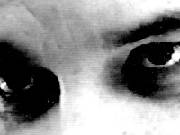|
|
||||
|
|
by Donald Levit  "Revolutions" if you will, movements that topple régimes, change cultures, alter societies, increasingly are born at university and law school campuses: Havana, Paris, Budapest, Berkeley, Buenos Aires -- and Santiago de Chile, seedbed of the struggle that ousted head of state Augusto Pinochet, though he walked with amnesty as subsequent senator-for-life and was released by Whitehall on "humanitarian and health" grounds. "The higher education connection is no more than logical," commented a political activist following a screening I attended of the moving Pinochet's Children. Those wealthy enough to study instead of face grinding rural or urban poverty can play with ideas but remain naïvely uninformed about the economic lassos uniting dictatorship, business and democracy. The film, for instance, is silent on the rôle of the Central Intelligence Agency, U.S. economic blockade and Marxist President Salvador Allende's nationalization and land reform programs that immediately sparked the military coup and years of brutal repression. German-based Chilean expatriate director Paula Rodríguez' script does allow sufficient archival footage to convey, not politics so much as the repression of the '70s as well as the flavor of student activity and strengthening protest in the next decade. However, the unique and conscious slant here is not public life but, rather, the careers and private demons of three of Ms. Rodríguez' contemporaries who ran at the forefront of "left-wing Marxist . . . Socialist . . . Communist" organization and agitation. Representative of a sector of the generation that lost its birthright in the bombing of La Moneda and suicide or murder of Allende, Alejandro Goic, Enrique "Poli" París and Carolina Tohá were sixteen, twelve and eight years old, respectively, that September 11 of 1973. The President's physician, París, Sr., "disappeared"; Minister of Defense José Tohá was detained and died in custody six months later. With what remained of their families "Poli" and Carolina first went into exile in France and Mexico, while Alejandro stayed and took to radical street activity. They are interviewed today, revisiting scenes of their anti-Pinochet activities, and Goic talks of his arrests and torture. Emphasizing lack of hatred and a refusal to be passive victims, their comments are interspersed with newsreel shots of them as militant student leaders in Santiago, innocent in ways but brave. Wistfully, they remark on the "intensity, adrenaline rush and fierce friendships" of that time; on their gentle but real resentment at being shunted aside by businessmen, international interests, the pragmatic Far Right and the military after the 1988 referendum -- the more things change, the more they stay the same; and on turning to drink, to business ("collecting payback," sniffed a cynic) or voluntary exile in Italy "to find out who I was." Goic is today a revolutionary playwright-theater director, while the other two have returned to politics.But what comes through most from these admirably frank self-exposures is affirmation of the need for continuity. All three, and that generation rising from 1973, are accompanied at every step by the spirits of their fathers, formed by their sires' ideals and sacrifices, lonely in the midst of comrades and seeking reconciliation with the past. Upsetting but psychologically beautiful, "Poli" kisses the skull above the recently recovered skeletal remains (cemetery Patio 29) of his father. "El padre del hijo; we are them." The three activists have found a measure of public and personal peace, on the hustings or the stage and in the kitchen or the park with their own young, unexpectedly introduced children. Companions always, they embrace on a barren cliff fronting an ocean which forever hides thousands of the nation's "disappeared," headshots of whom still haunt the capital's streets twinning that city with New York. Aiming beyond political record of a time and place, Pinochet's Children is really of all sons' and all daughters' time and place. With its apt original Spanish title of Volver a vernos, "To See Each Other Again," and "dedicated to the generation of our parents, to our own and to my son," this film premières on June 13, 2003, as part of the Lincoln Center 14th Annual Human Rights Watch International Film Festival. (Released by Ma.Ja.De; not rated by MPAA.) |
||
|
© 2026 - ReelTalk Movie Reviews Website designed by Dot Pitch Studios, LLC |



